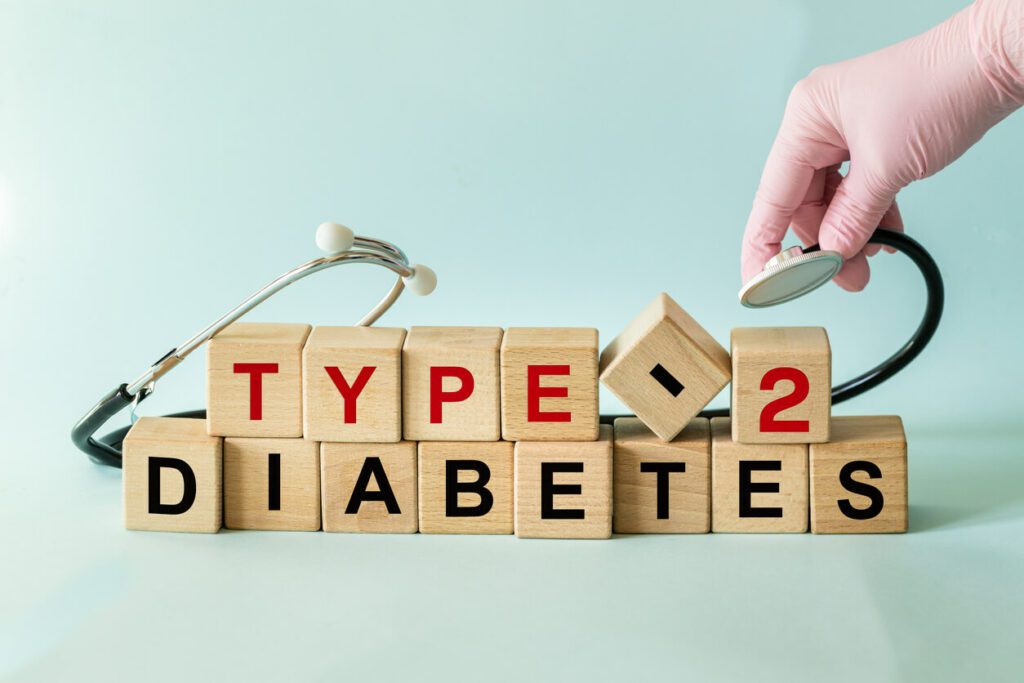
Diabetes is a well-known condition, yet many adults are only familiar with its major symptoms. Most people recognize the major signs like frequent urination, feeling thirsty all the time, or unexplained weight loss. But type 2 diabetes can show up in less obvious ways. These subtler signs are just as important. They matter because spotting type 2 diabetes early can help you avoid complications and get on the right treatment path.
This article will help you recognize lesser-known type 2 diabetes symptoms and when to see an endocrinologist.
Why Most People Miss Some Diabetes Symptoms
A lot of adults keep an eye out for familiar warning signs. However, many symptoms of high blood sugar are easy to miss. Type 2 diabetes develops gradually, so its effects can sneak into your daily life. You might brush off certain changes in your body, thinking that the cause is stress, aging, or a minor illness. Unfortunately, these symptoms can be red flags.
When you recognize them early, you can get tested and start managing diabetes before it leads to bigger problems.
Lesser-Known Type 2 Diabetes Symptoms
Many symptoms of type 2 diabetes get less attention, but they matter. If you notice these signs, talk to a trusted diabetes doctor near you.
1. Recurring Skin Problems
You might notice your skin changes in ways you have not seen before. Dark, velvety patches can appear, often around the neck or armpits. Doctors call this acanthosis nigricans, and these patches are not only cosmetic issues. They are often early markers of insulin resistance.
You may also develop frequent skin infections like boils, fungal infections, or slow-healing wounds. High blood sugar weakens your body’s ability to fight off bacteria and fungi.
2. Vision Changes That Come and Go
Blurred vision does not always mean you need new glasses. High blood sugar can cause swelling in the lens of your eye, which changes how well you see. Vision can improve or worsen from day to day. Many people experience fluctuating vision before being diagnosed. If you have new or swinging vision problems, do not ignore them.
3. Persistent Fatigue
Type 2 diabetes drains your energy even if you get enough rest. When cells cannot properly use glucose, your body feels worn out. Unlike regular tiredness, this fatigue will not go away with sleep. You may notice it most after eating, because your body struggles to convert food into usable energy.
4. Tingling or Numbness
Nerve damage is a common diabetes complication, but most people think it only happens later. Tingling, burning, or numbness in the hands, feet, or legs can appear early on, which experts call peripheral neuropathy. If you feel pins and needles without a clear cause, check with your doctor.
5. Unexpected Itchy or Dry Skin
Itchy skin often points to dehydration or allergies. However, in diabetes, high blood sugar draws fluid from the cells, leaving your skin dry and cracked. Sometimes, the itching is most noticeable on the lower legs or feet. Do not ignore chronic itching or persistent dry patches.
6. Subtle Mood Changes
Blood sugar swings can affect your mental health. Some people experience increased irritability, mood swings, or trouble concentrating. You may feel down or anxious for no clear reason. If you notice new changes in your mood that do not have another cause, diabetes could be the reason.
7. Recurrent Mouth Issues
Type 2 diabetes increases the risk of gum disease (periodontitis) and fungal infections like oral thrush. If you often have swollen, bleeding gums or white patches in your mouth that return even after treatment, pay attention. High blood sugar encourages bacteria growth and raises the risk of mouth infections and sores.
8. Frequent Urinary or Vaginal Yeast Infections
Diabetes can weaken the immune system, making your body more prone to infections. Women may notice an increase in vaginal yeast infections. Meanwhile, both men and women can get more urinary tract infections. If you have infections that keep returning, get your blood sugar checked.
9. Sudden Increase in Hunger, Even After Eating
Constant hunger can be a result of high blood sugar. Your body may not properly move sugar into your cells, making you feel hungry soon after eating. This symptom can go unnoticed if you assume bigger appetites are due to stress or exercise.
When to Visit an Endocrinologist for Diabetes Treatment
Recognizing these lesser-known symptoms helps you take action. It is important to seek medical care if:
- You experience any combination of these symptoms for more than two weeks.
- You have a family history of type 2 diabetes.
- You are overweight or have other risk factors, such as high blood pressure or high cholesterol.
An endocrinologist specializes in hormone-related conditions, including diabetes. You should see an endocrinologist if the following are true for you:
- You have been diagnosed with type 2 diabetes but struggle to control your blood sugar.
- Your treatment plan needs refinement or specialized medications.
- You develop diabetes complications, like vision changes or neuropathy.
- You want expert advice on managing diabetes with diet, exercise, or insulin therapy.
Intercoastal Medical Group has board-certified endocrinologists ready to help you.
Type 2 Diabetes Symptoms in Sarasota & Bradenton, FL
Type 2 diabetes is a complex condition, and not all symptoms are easy to spot. Some, like skin changes or mood swings, can seem unrelated. Knowing the lesser-known type 2 diabetes symptoms gives you a better chance of early diagnosis. In turn, this allows you to start treatment before complications develop.
If you or someone you love shows any of these signs, do not delay. Early intervention can make a big difference in quality of life and long-term health. Contact Intercoastal Medical Group by calling our office nearest you or using our online appointment request form. Our team can help you take control of your health, starting today.
The best endocrinologists near you look forward to serving you!
Sources:
https://my.clevelandclinic.org/health/diseases/21501-type-2-diabetes
https://www.mayoclinic.org/diseases-conditions/type-2-diabetes/symptoms-causes/syc-20351193
https://www.mayoclinic.org/diseases-conditions/type-2-diabetes/diagnosis-treatment/drc-20351199

